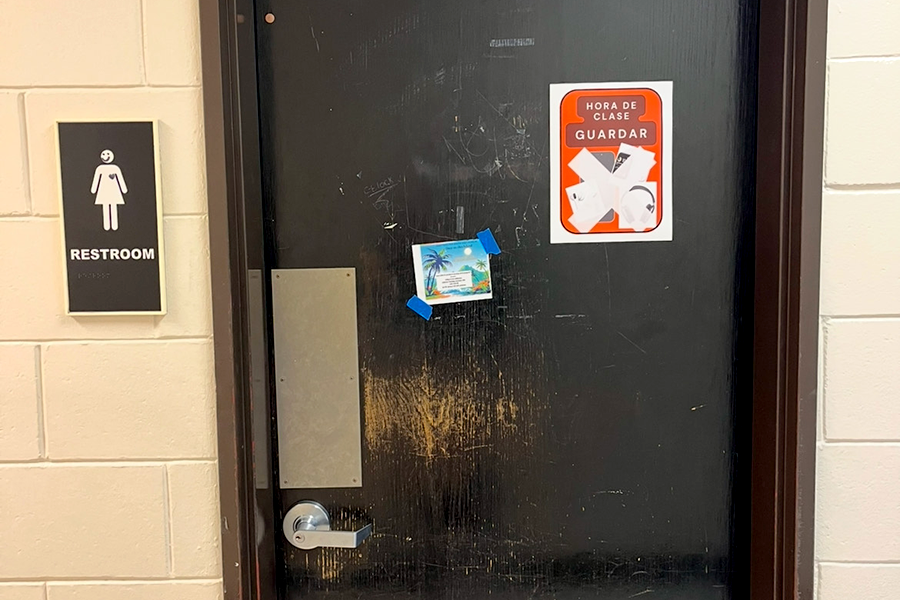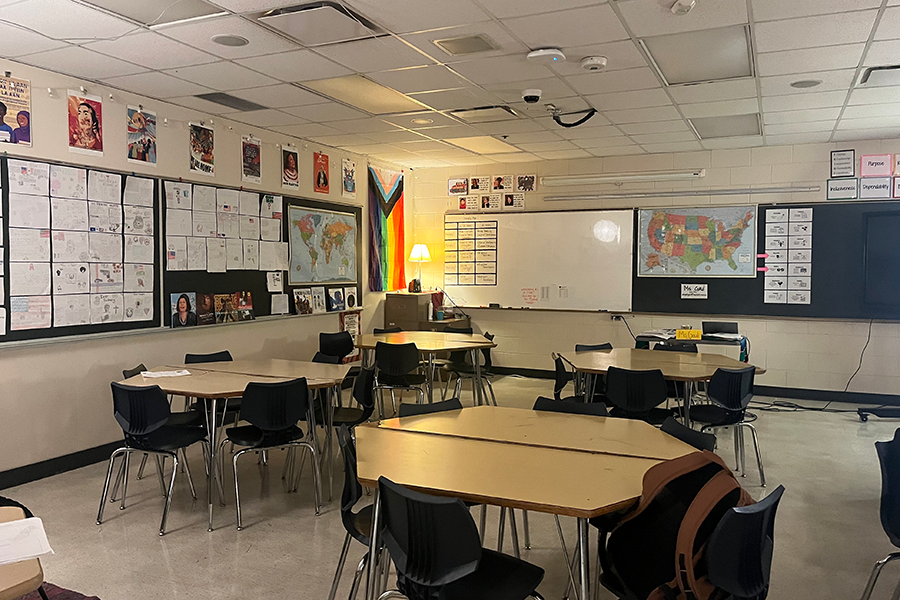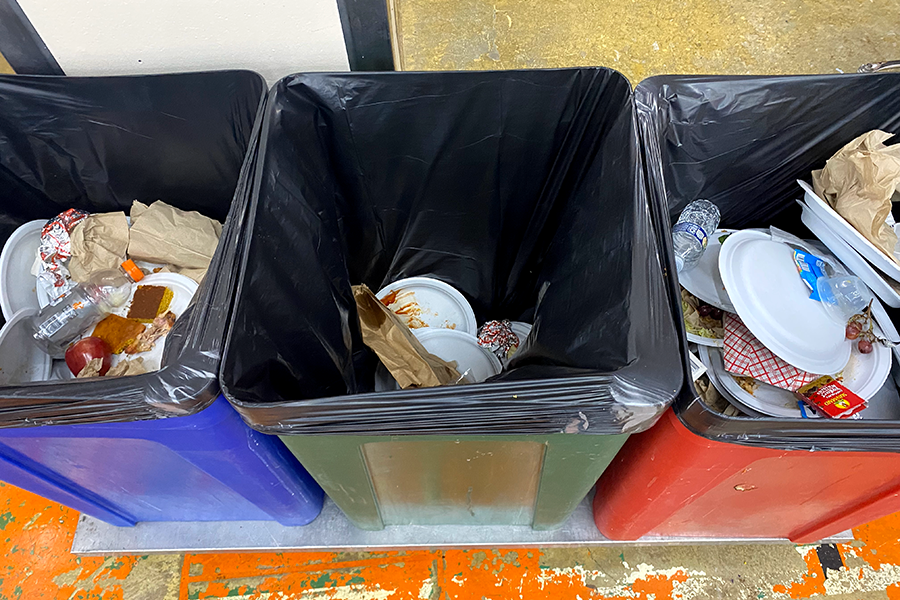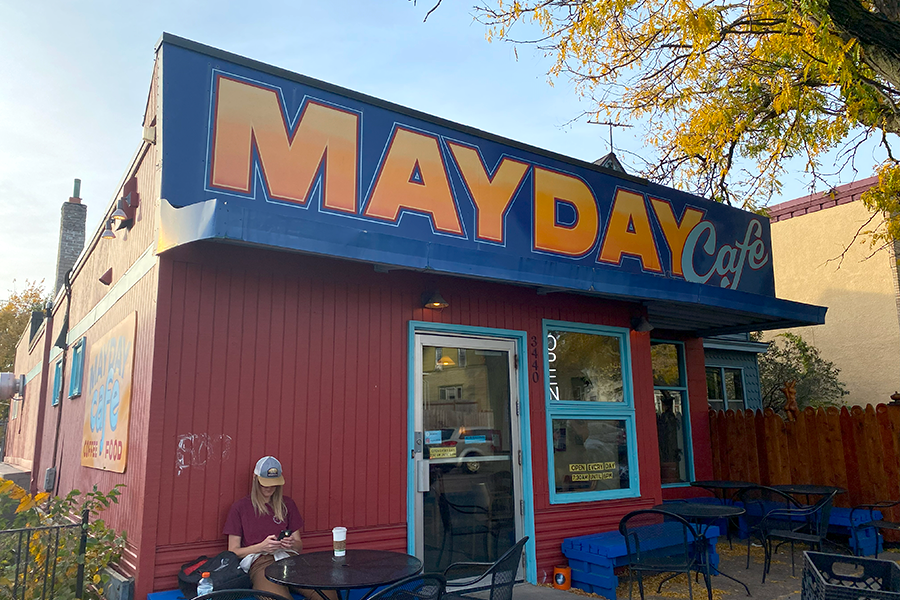When I walk into the s.t.a.r.t. meeting right after school on a Wednesday, I’m immediately struck by a feeling of calm and organization in the room. I ask Kate Towle, adult ally and creator of Project s.t.a.r.t. Leadership, if it’s all right if I sit in the corner, and she responds by saying, “Why don’t you participate? It’s much better to be involved.”
This idea of involvement becomes more and more obviously relevant to the group’s mission as the meeting continues. It begins with introductions and the reading of the s.t.a.r.t. Creed, which is made up of statements such as “Respect starts with us: we respect ourselves and respect others.” and “We are not born prejudiced. We learn prejudice and can un-learn it.”
s.t.a.r.t. stands for ‘students together against racial tension.’ The mission of the group, as senior member Eva Mitchell puts it, is “to keep race a relevant topic.”
Senior Fardousa Ahmed adds “[race] is not something you talk about once a week, and then it goes away until you talk about it again, you carry it with you.”
Mitchell and Ahmed are the closest things the group has to student leaders, though Mitchell is quick to clarify: “We don’t have titles, like president or vice president. It’s not about us talking to them, it’s about the discussion.”
Though there are obviously many friends in the room, there is no excessive talking or messing around. The three rules generated by Towle and Mitchell are: no cell phones and no side conversations, because they detract from strong discussion, and to talk to new people, because the group is all about crossing boundaries.
“Does that sound right to everyone? Is there anything we should add?” is Towle’s refrain after every important decision the group makes.
“They’re going to need me initially because a lot of stuff is new to them,” she says, “but I’m really just their adult ally, it’s really their group.”
Ahmed says about the experience of being a leader: “It’s really not telling people what to do-it’s more like listening. You have to listen to everything.”
The meeting goes on to talk about recruiting new members. Towle says they are trying to reflect the diversity of South. “Bring a friend who is not like you,” adds Ahmed.
“I wish I could say we are more active.” says Mitchell, “there are not that many people right now.”
Though the group has done many community projects in the past, right now they’re just focusing on getting more members.
“Any new people that come, it’s just that much more awareness. Any new discussion or knowledge is educational,” says Mitchell.
“Once we’re bigger,” Mitchell adds, “it would be cool to have bigger events that involve the whole school.”
“We don’t want it to be just a small group of students making decisions. We want it to really build a culture of safety and awareness within our environment,” says Towle.
Towle initially started Project s.t.a.r.t. Leadership as a small group during lunch.
“Then we realized that we had to make a lot more equitable, because we were talking about equity but we weren’t allowing everyone from every lunch to come,” she laughs.
As s.t.a.r.t. grew in membership, it also gained more attention in the community. Two years ago, the group went on KFAI on Martin Luther King Day, “shaking like leaves” smiles Towle, to talk about race.
“It was a great experience” says Mitchell.
They also participated in a community-led group at St. Thomas, where members of s.t.a.r.t. facilitated a discussion on race with adults.
“Listening to what they said-learning what goes on in the community-you can’t find that in school,” explains Ahmed, “even though I was usually the youngest person there, they wouldn’t just dismiss what I had to say, they were interested in a different point of view.”
s.t.a.r.t.’s efforts to reach out to the community did not go unnoticed. This July, s.t.a.r.t. emerged as the top out of 49 ideas submitted to the St. Paul Foundation’s Facing Race Idea Challenge, and won a $2,500 grant.
“The grant-it’s making people take another look at us, in fact it’s making us take another look,” says Towle, “the grant will allow us to actually have students engaged in creating curriculum for other South students. A program is already being developed at Ann Watin Middle School because of the work of our students here. By doing this and creating a format for it, then we can offer that format to more environments.”
After the beginning of the meeting, Towle shows a video about African American girls that she thinks is powerful.
“Let’s have some immediate reactions,” is how she starts the post-video discussion, which encompassed ideas like the thought-provoking moments of the video to the media’s involvement with brainwashing kids. It ended with the statement:
“Race is a social construct-it’s not in our DNA.”
This is one of the ideas that Towle makes a point of repeating at every meeting.
“We start out reminding ourselves that we believe that all students are capable of success…because we know many of our students have heard all their life that they’re not capable of success. So we want to strengthen that by repetition, we’ll continue to stress those values,” says Towle of s.t.a.r.t.’s Creed, which is read at the beginning of each meeting.
“We also understand that culture is something we create every moment-culture is grounded in values and beliefs and patterns…we realize that we can unlearn those attitudes.”
s.t.a.r.t. seems like it’s going to have a positive future. “Once we know who we are, as individuals and as a group, then we’ll start to expand our awareness of each other,and branch out into the community,” says Towle during the meeting. The group is looking to begin doing more community based projects in the spring, in order to spread awareness.







